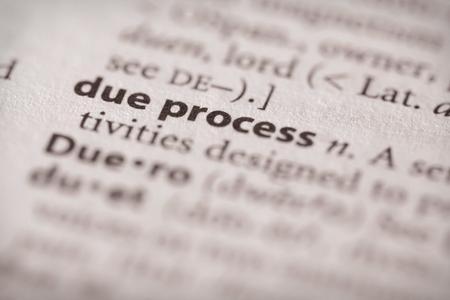Do You Know These Important Legal Terms?

We've all seen a crime show or two, so we've all heard some basic legal slang. No matter how much you've heard though, being in a courtroom can feel like a whirlwind. If you are not familiar with legal lingo, it is easy to get lost in the discussion. We put together a list of commonly used courtroom terms and their definitions to help you make sense of how a case is going if you find yourself standing before a judge. Doc's Bail Bonds can help you secure your release from jail anywhere in DFW so you can get back to studying up on your legalese before a court date. Call us any time, day or night!
Accessory
Someone who assists a person to commit or plan a crime. They can face severe charges.
Accomplice
This is also someone who assists in a crime, but they are usually present when the crime occurs. They, too, can face serious charges.
Acquittal
The judgement that a defendant is not guilty of their charged crime.
Arraignment
A defendant's court appearance where they testify their plea to charges against them.
Bail/Bond
The money a defendant can pay to a court to be physically released from jail with the promise that they will attend future court dates.
Beyond a Reasonable Doubt
Typically used when talking about evidence. The evidence must be so undoubtably true that a jury has no choice but to give a guilty verdict.
Bond Forfeiture
If a bonded-out defendant does not attend a court date when called upon, the person who paid their bond must pay the entire amount, and it cannot be refunded in the future.
Booking
Part of the arrest process in which the arrestee's information and crime are put into police records.
Circumstantial Evidence
All evidence in a case other than eyewitness testimonies.
Coercion
The use of force to make someone do something they otherwise would not have done.
Corroborating Evidence
Evidence that supplements or supports other evidence.
Cross-Examination
When a witness is questioned a second time by the defense or prosecution to challenge their past testimony.
Defendant
The person being accused of the crime.
Disclosure
Revealing facts that were previously unknown.
Dismissal
Formally ending the charges against a defendant.
Due Process
The standard procedures of a courtroom to ensure Constitutional rights are honored and protected.
Felony
Extremely severe crimes that come with extreme punishments. These fall into four degrees of intensity: 1st, 2nd, 3rd and capital.
Immunity
Protection by the courts against possible prosecution for an individual who agrees to provide criminal evidence.
Miranda Rights
Rights that must be verbally stated to an arrestee in order for their conversations with officers to be used as evidence in the future. They include the right to remain silent, the right to consult a lawyer and have them present during questioning, and the right to cease conversations with police at any point.
Misdemeanor
Crimes that are not as severe as a felony, will usually be dealt with in a County Court.
Plea
How a defendant decides to claim responsibility to a charge against them. Guilty, not guilty and no contest are the allowed pleas.
Public Defender
A court-appointed lawyer for when a defendant does not have their own private lawyer but wants representation.
Surety Bond
The legal contract between the defendant, the bondsman and the court that states the defendant will follow the agreed upon terms.
Doc's Bail Bonds: Guiding DFW Through the Jail Process Every Day
Though there is a lot that happens in a courtroom, no one should feel lost during their trial. These legal terms can help you follow along during your court visit and cut out a lot of that confusion. If you or a loved one has been arrested in DFW and needs help securing your bail bond, Doc's Bail Bonds has your back. Our experienced team is standing by 24/7, so call us at (214) 747-4110 or visit our website to speak with a bond agent immediately.










